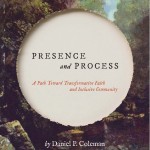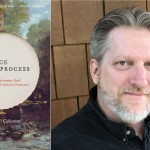I’m going to write a few posts to attempt to explain what Buddhist-Christian-Quaker means to me. In this post I’ll focus primarily on the Buddhist part of that.
Let me begin by clarifying that I have been a Christian for 30+ years. I became a follower of Jesus as a young adult in the mid-1980’s (while traveling through Texas as the bassist for a heavy metal band–but that’s a story for another post). I prayed the “Sinner’s Prayer” to become “born again” in a church parking lot in Beaumont, Texas. For many years after that I attended fundamentalist non-denominational charismatic evangelical churches. I met my wife at church. We raised our son within the evangelical culture.
After about two decades in the fundamentalist Christian world, my wife and I left to start a house-church and then, over the course of a few years, became Quakers. Our son, by that time a young adult off at college, had already joined the growing ranks of “the Nones” (people who describe their religious affiliation as “none”). Being a Quaker Christian enabled me to gain some distance from my fundamentalist past and opened the door to contemplative spirituality. I began learning about other forms of Christianity and also about other religions (not just for the purpose of winning theological debates, but rather to simply learn and appreciate the wisdom they had to offer). I had spent most of my Christian years fairly ignorant (and, frankly, somewhat fearful) of other faiths, while simultaneously smug and sure in the correctness of my provincial fundamentalist ghetto.
Among the many world-religions I studied, one of them unexpectedly “clicked” with me in a big way: Buddhism. That scared me a bit at first. I didn’t want to become one of those cautionary tales I had heard so many times at church: “Daniel went to seminary and lost his faith in Jesus and became an apostate and now he is hopelessly lost.” But then I read (and re-read, and re-read again) Paul Knitter’s book Without Buddha I Could Not Be a Christian. Knitter had been a Catholic priest, a student of the eminent theologian Karl Rahner, and then an esteemed professor of theology himself–first at Xavier University in Cincinnati and now as emeritus at Union Theological Seminary in New York City. “Buddhism has helped me take another and deeper look at what I believe as a Christian,” he wrote. “Many of the words that I had repeated or read throughout my life started to glow with new meaning.” This was the experience I was having as I was drawn toward the teachings and practices (the Dharma) of the Buddha. I could not embrace certain ideas such as reincarnation and karmic reward/punishment in future lives, but I discovered that these ideas were not intrinsic to the Buddha’s core teachings. Stephen Batchelor’s books, especially Buddhism Without Beliefs helped me sort this out.
So, does that make me a Buddhist? Let me hedge a little further: Some Buddhists would say that there is really no such thing as Buddhism. “Buddhism” is a term, an “ism”, invented by Western scholars in the 19th century to categorize the 2,500 year-old movement of people practicing the Dharma. We Western scholars love to categorize, and so “Buddhism” was placed alongside Christianity, Islam, Judaism, Hinduism, Taoism and other world-religions for the sake of comparison and contrast. Many highly regarded Buddhist teachers today, such as Thich Nhat Hanh, although they will use the de facto descriptor of “Buddhism,” prefer to speak of “practicing the Dharma.” That seems to align more closely with the way Buddhists described themselves throughout history. I like how that descriptor places the emphasis on practice–what one does–rather than on merely subscribing to a set of beliefs or doctrines.
At this stage in the game the descriptors “Buddhism” and “Buddhist” have become established nomenclature and are unlikely to disappear.
Bhante Gunaratana, in his book Mindfulness in Plain English, wrote:
“Buddhism does not advocate faith in the sense of believing something because it is written in a book, attributed to a prophet, or taught to you by some authority figure. The meaning of faith here is closer to confidence. It is knowing that something is true because you have seen it work, because you have observed that very thing within yourself. In the same way, morality is not a ritualistic obedience to a code of behavior imposed by an external authority. It is rather a healthy habit pattern that you have consciously and voluntarily chosen to impose upon yourself because you recognize its superiority to your present behavior.”
Can being a Buddhist coexist with being something else, such as a Christian? From the Buddhist perspective it certainly can. Zen monk Shunryu Suzuki wrote, “If you’re not a Buddhist you think there are Buddhists and non-Buddhists, but if you’re a Buddhist you realize everybody’s a Buddhist–even the bugs.” In a future post I’ll explore this same question from a Christian perspective.
The word Buddha is a title which means “awakened one.” The goal of practicing the Dharma is to become awakened, just like the man Gautama did 2,500 years ago and like many men and women purportedly have since. Therefore to be a Buddhist means to be an “awake-ist” and Buddhism is literally “awake-ism.” Through mindful practices–particularly meditation–one becomes awake to aspects of reality such as impermanence, dependent origination, emptiness, non-self, interbeing, etc. The experiential awareness of these things leads to greater peace and contentment and integrity in this life–here and now. “The buddha-dharma is about examining our lives, our behavior, our speech, and the means by which we earn our keep on this planet–and how all these activities connect with everything else,” writes Steve Hagen in Buddhism Plain and Simple, “We have only one choice. Either we awaken, or we do not.” In other words, reality is what it is. Buddhism is about becoming experientially aware of reality and living one’s life accordingly.
So, do I practice the Dharma? Yes. Do I love and follow Jesus? Yes. Am I a Christian? I believe so. Am I a Buddhist? I believe so.











